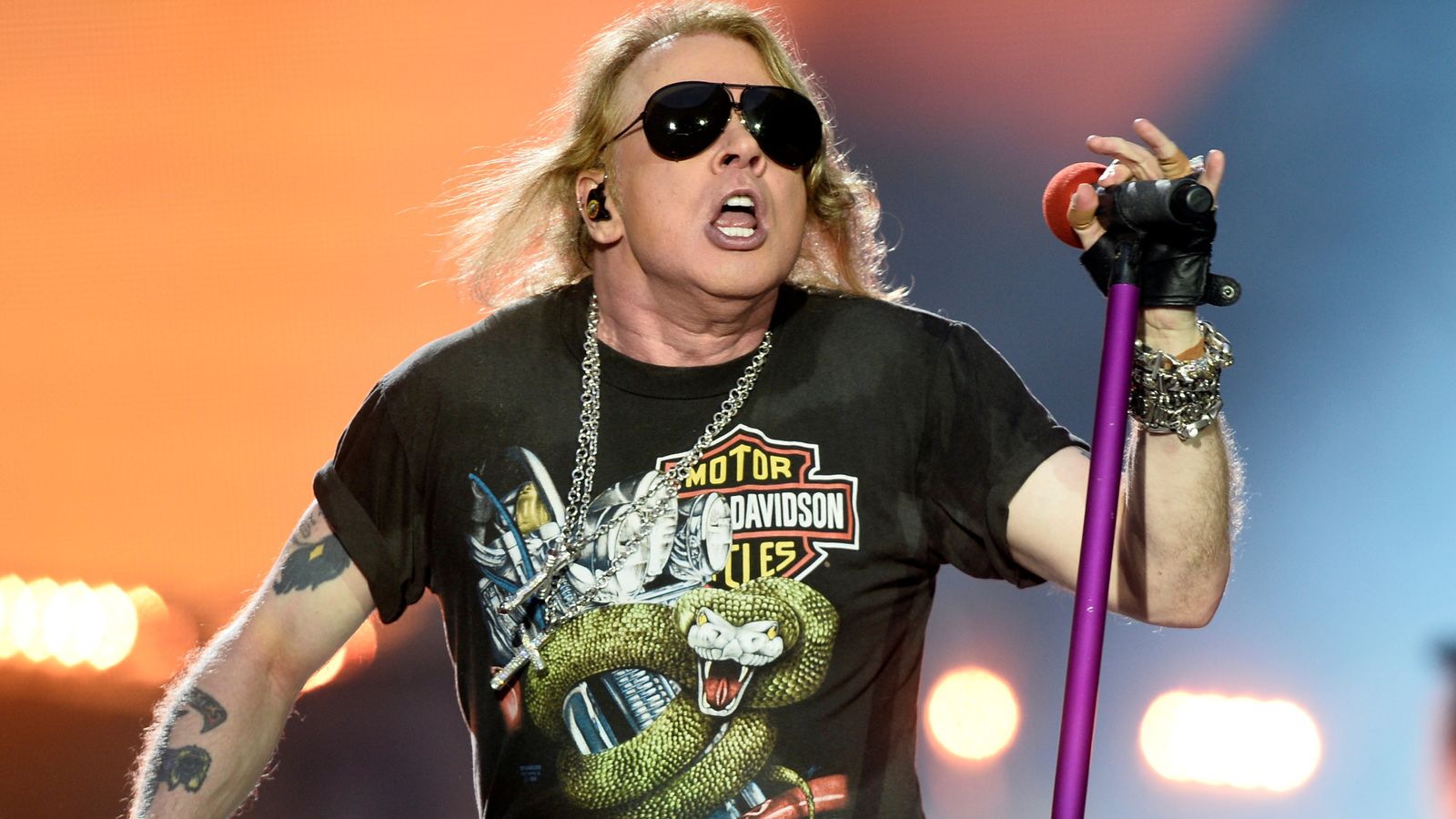A string of celebrities have been accused of sexual assault in recent days, including Guns N’ Roses singer Axl Rose, actor Jamie Foxx and music industry veteran Jimmy Iovine.
The flurry of accusations comes just before Thanksgiving in the US – when a law that let adult victims sue over historical attacks expires.
Sky News looks at what the law means, why it was brought in and what cases were filed under it.
Why have so many people been accused recently?
The lawsuits were filed under New York’s Adult Survivors Act (ASA).
The law was brought in a year ago and created a year-long suspension of the usual time limit to sue over an alleged sexual assault.
Before that, New York laws meant most adult survivors of sexual abuse had between one and five years to bring a civil lawsuit or press criminal charges.
But during the “lookback period”, survivors could sue over abuse that happened at any point in their adult life.
The window will expire at the end of Thursday 23 November, having opened on 24 November 2022.
The ASA was modelled on a previous New York law that gave people abused as children a temporary window to file claims.
By the time the Child Victims Act’s two-year window closed in August 2021, almost 11,000 people filed lawsuits, many involving the Roman Catholic Church.
What lawsuits have been filed under the ASA?
More than 2,500 lawsuits have been filed under the ASA.
In the run-up to Thanksgiving, Axl Rose was accused by Sheila Kennedy, a former Penthouse magazine model, of sexually assaulting her in a New York City hotel room in 1989.
Jamie Foxx was also sued under the act on Wednesday by a woman who accused the Hollywood star of sexual assaulting her at a New York rooftop lounge in 2015.
On Tuesday American writer and filmmaker AM Lukas accused White Lines actor Nuno Lopes of drugging and raping her in 2006.
Also on Tuesday, a woman accused Bill Cosby of drugging and sexually abusing her after offering to mentor her in her acting career – joining more than 60 women who have accused him of rape, sexual assault and sexual harassment.
Photographer Terry Richardson had a new lawsuit filed against him on Tuesday by Spanish model Minerva Portillo.
Meanwhile, music industry veteran Jimmy Iovine was sued by a woman who claims she was sexually abused, forcibly touched and subject to sexual harassment and retaliation in August 2017.
Read more from Sky News:
A$AP Rocky to stand trial accused of firing a gun at former friend
Mendy sues Man City for unpaid wages during rape charge
Also on Wednesday, Oscar-winning actor Cuba Gooding Jr was sued by two women whose sexual assault accusations against the star formed the basis of a criminal prosecution that ended with him pleading guilty in April 2022 but serving no jail time.
One of the first lawsuits filed when the lookback period opened was against Donald Trump.
In May, the former president was found liable for sexually abusing writer E. Jean Carroll in 1996. Trump has denied the allegation.
Others who have been sued under the law include Russell Brand, former movie producer Harvey Weinstein, and hip-hop mogul Sean “Diddy” Combs – whose case was settled after one day.
Click to subscribe to Backstage wherever you get your podcasts
Not just celebrities
The majority of cases of the 2,500 lawsuits involve allegations of abuse in prisons, with the lawsuits filed against the state, New York City and local counties.
Other lawsuits have targeted employers, or institutions such as hospitals, accused of failing to do enough to stop abuse by doctors or other workers.
Why was the law brought in?
Advocates say the window for reporting historic abuse gives traumatised adults a chance to seek accountability from big institutions and powerful men who can use their wealth and position to shield themselves.
“The reason we fought so hard for this bill is because trauma takes time,” Safe Horizon CEO Liz Roberts said.
New York governor Kathy Hochul said the initial law covering child sexual abuse “forgot” people who suffered the same type of abuse as adults.
Survivor and advocate Marissa Hoechstetter said the law was about “giving people a voice in how they choose to heal from harm done to them”.
“Whether or not a survivor exercises their right to pursue civil justice under this law is completely up to them. Nonetheless, we’re putting the power back in the hands of survivors.”








